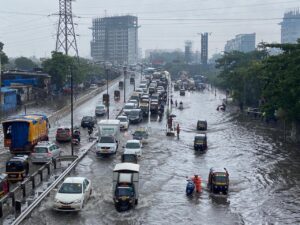Google Ordered to Pay ₹10 Lakh to Police Officer After Street View Captured Him Naked in Private Backyard

Google Ordered to Pay ₹10 Lakh to Police Officer After Street View Captured Him Naked in Private Backyard
In an unusual yet deeply personal privacy violation case, Google has been ordered by an Argentine court to pay ₹10 lakh (approximately $12,500) in damages to a police officer whose naked image was unintentionally captured by the tech giant’s Street View camera. The man, who was in the privacy of his backyard at the time, has been fighting for justice ever since the incident occurred back in 2017.
The incident took place in a small Argentine town where the officer, while in his private yard and behind a wall approximately 2 meters (6.6 feet) tall, was caught on camera without clothing. The image, captured from behind, revealed not only his unclothed state but also his exact house number and street name — details that were later shown on Argentine television and widely circulated across social media platforms.
This public exposure led to embarrassment among his neighbors and colleagues, prompting the officer to pursue legal action against Google for damaging his dignity and invading his privacy.
Initially, the officer’s case didn’t receive a favorable ruling. A lower court dismissed his claim, suggesting he bore responsibility for being “inappropriately undressed in the garden of his own residence.” Google echoed this view, stating that the boundary wall wasn’t tall enough to block the camera’s view.
However, in a significant turn of events, the appeals court reversed the earlier decision. The judges strongly criticized the exposure, emphasizing that the image was taken not in public, but “within a private residence, shielded by a fence taller than the average individual” — an act they called a “clear and unjustified intrusion into personal life.”
They further ruled that there was “no reasonable excuse for Google to avoid accountability for this incident, which clearly invaded the personal space of the plaintiff and compromised his human dignity.”
The court highlighted Google’s existing measures, such as its routine blurring of faces and license plates on Street View, as evidence that the company is well aware of its responsibility to protect people’s identities. Yet, “in this particular instance, it wasn’t just a face — it was the man’s full naked body that appeared, and such a visual should have been filtered out as well.”
The judgment also underscored that “nobody would willingly want to be exposed to the public in such a vulnerable state, like the day they were born.”
While Google was held accountable for the initial capture and display of the image, the court cleared local telecom company Cablevision SA and news outlet El Censor, stating their coverage “brought attention to the error committed by Google rather than adding harm.”











